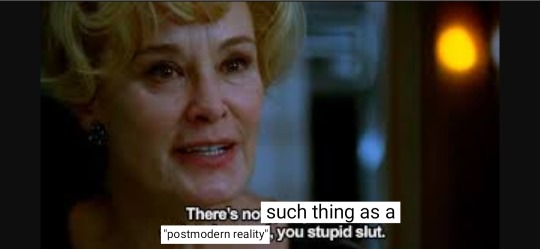#donna haraway
Text
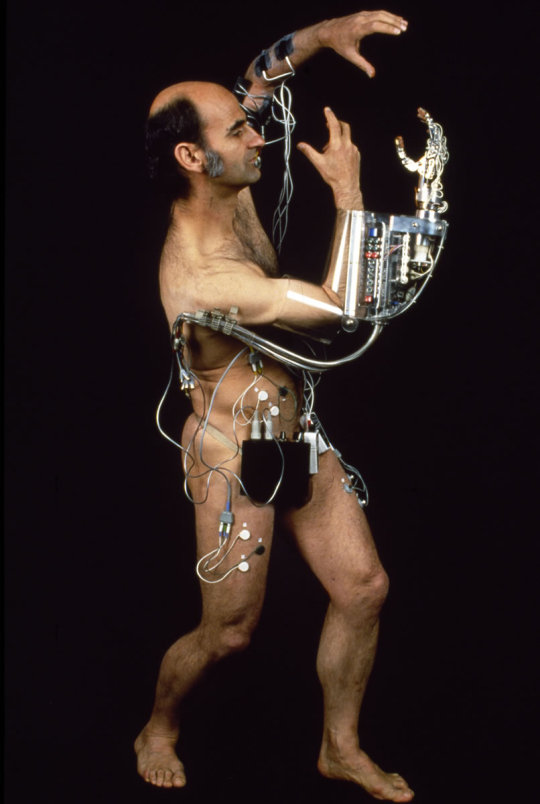
Amplified Body, Laser Eyes and Third Hand (1985)
by Stelarc
#1980s art#performance art#stelarc#cyborg#Australian art#body art#body modification#interdisciplinary#donna haraway#posthuman
2K notes
·
View notes
Text


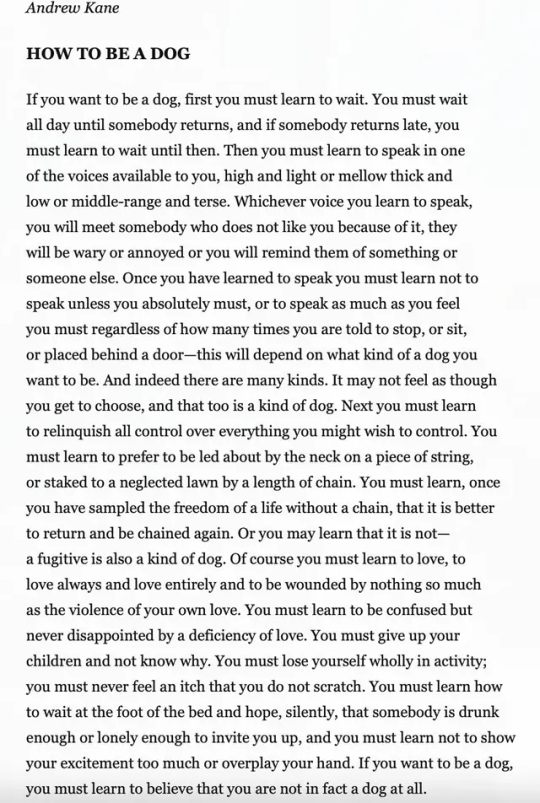

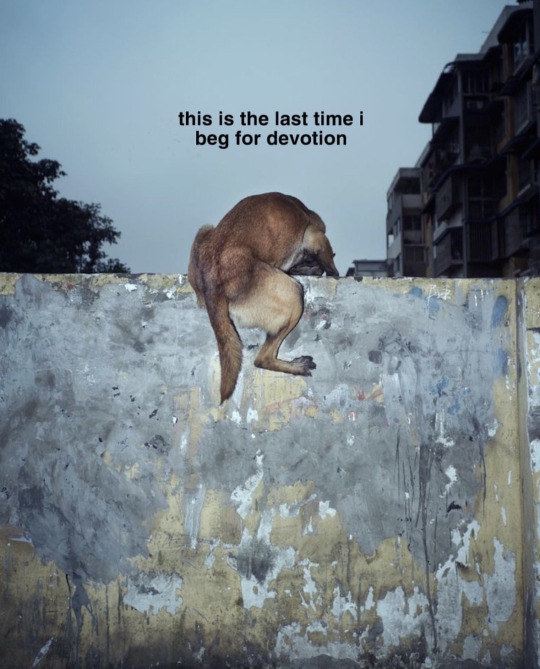

Mitski, "I'm Your Man" // Donna Haraway, The Companion Species Manifesto: Dogs, People, and Significant Otherness // Andrew Kane, "How to Be a Dog" // // Soccer Mommy, Your Dog // "this is the last time i beg for devotion" by violenttradwife // Anne Carson, Preface to Hekabe from Grief Lessons
#parallels#web weaving#mitski#the land is inhospitable and so are we#i'm your man#donna haraway#the companion species manifesto#andrew kane#how to be a dog#soccer mommy#your dog#this is the last time i beg for devotion#anne carson#hekabe#hecuba#grief lessons#webweaving
811 notes
·
View notes
Photo
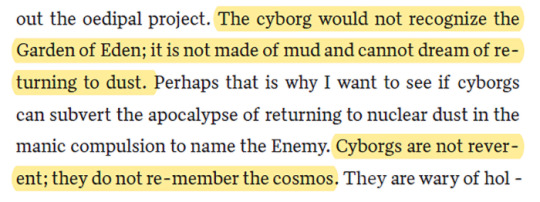
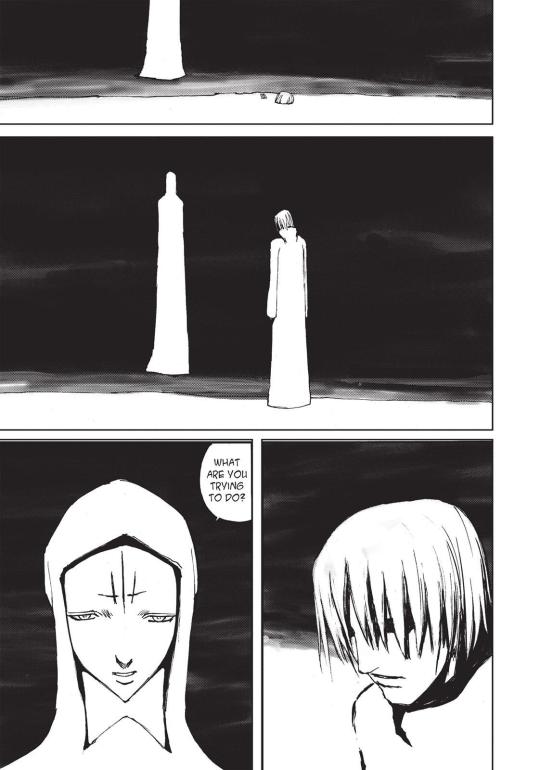


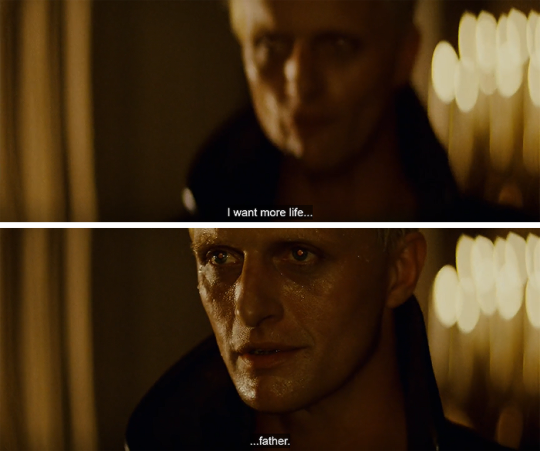

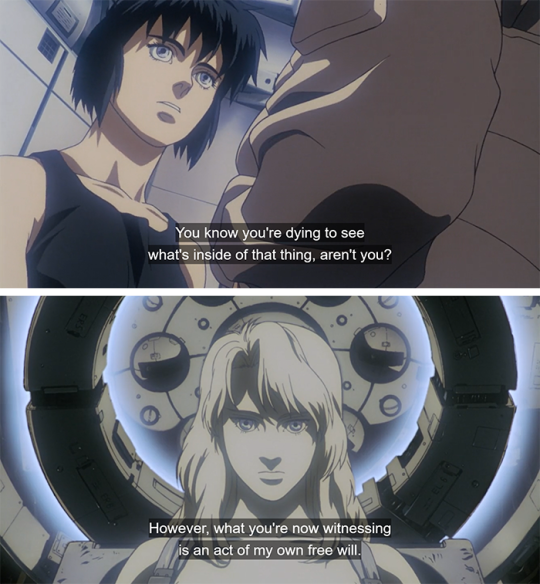

a cyborg manifesto, donna haraway - BLAME!, tsutomu nihei - holy wild, gwen benaway - blade runner, ridely scott - pixel affection, yeule - ghost in the shell (1995), mamoru oshii
#web weaving#comparatives#parallels#words#a cyborg manifesto#blame!#holy wild#blade runner#ghost in the shell#donna haraway#tsutomu nihei#gwen benaway#ridley scott#yeule#mamoru oshii#ghost in the machine#kindly sponsored by: me not being able to stop thinking about davine lu#pinned
484 notes
·
View notes
Text
I finished Ursula K Le Guin’s The Farthest Shore yesterday, and it got me thinking about two things:
1) The relationship between truth and meaning.
2) The wisdom of accepting death.
The conflict of the book is established when it is discovered that people have lost their connection to the “true speech”, the language of creation, which means that wizards can no longer use magic, but also that everyone falls into nihilism, listlessness, and paranoia. People retain their regular language, but the language of magic is lost, and so they lose their grip on reality. They see everything as flat, without any transcendence in anything. Nothing is more significant than anything else, and so nothing is worth doing. People keep talking, but none of it means anything real.
The cause of this is someone trying to escape the fear of death by dying and coming back immortal, leaving a tear in the world that magic leaks out of. The fact that they have to first die to find immortal life suggests that death and immortality are in a way the same thing, and that this deconstruction is the cause of the spread of nihilism. The necromancer is able to send out a message to people’s dark sides, causing this change in them:
By denying life you may deny death and live forever!
This is reflected in the fact that the souls of the dead show an even more extreme embodiment of the emptiness and stillness experienced by those seduced by the message. The tear in the world is blurring the distinctions between life and death, and calling for people to hurry it along.
For Le Guin then, life is change and difference - rather like Octavia Butler’s message from Parable of the Sower that “God Is Change”. Maybe the key part of Butler’s poem for this though is “The Only Lasting Truth Is Change.” Seeking immortality is sort of denying reality. Le Guin describes each individual life as a wave on the ocean, and claims that seeking immortality would be like making the entire ocean one wave, so that it grows still. In other words, life cannot exist without other lives, and without a chance of ending. A single life that totalises all would be indistinguishable from death.
I’m with her on the first point, that a changeless life would be indistinguishable from death. Experience is formed through interaction, which inevitably changes both parties. This is ancient knowledge, which Le Guin no doubt gets from her passion for Taoism, but my favourite exposition is Donna Haraway’s Situated Knowledges. But if life is always changing, always unfinished, why could there not theoretically be an eternal life which does not totalise, which accepts its mutability?
I think here is where we run up against the tension between Le Guin’s commitments to true language on on side and contingency on the other. Nietzsche is famous for having pointed out that language is a host of metaphors. Derrida then took this further to point out that no word is self-contained, rather its meaning is dependent on so many others that it can never be pinned down perfectly to mean just one thing for certain. This includes the self. It stops and starts when we’re knocked unconscious, and its altered with every experience, every exchange of atoms. In a sense we die a lot - if we thing of ourselves as a being, rather than an emergent property of various processes. We can’t be perfectly described with a word, because we aren’t a constant thing anyway, irrespective of that final death.
But this is kind of a moot point as Le Guin’s story is concerned. Few of us ever actually seek immortality. And Le Guin is right to frame it as an impossible task. It plays a symbolic role for the equally, perhaps even more, impossible task of seeking control, constancy, solidity. Nothing is constant - The Only Lasting Truth Is Change. But for me this just makes the final change of death easier to accept, as just one more change that will leave the previous version of myself behind - only this time there won’t be a recognisably new version to take its place.
There is definitely a difficulty in accepting the indefinite fuzziness that comes to things when you look at them like this though, that can lead to the nihilism Le Guin was so afraid of. I think Le Guin answers this rather well though, when she says that we cannot help but do everything we do, want everything we want, feel everything we feel. We can’t actually avoid caring about things, especially if we throw ourselves into them. We don’t have to justify what we care about based on some sort of metaphysical truth, as if we could ever be certain of that - we just have to accept the inclinations given to us by the universe and act on them in a balanced way to make ourselves content. Don’t rationalise your feelings through strict force of will, pay attention to them and what the good asks of you. That’s actually from a different anarcha-feminist writer - Simone Weil - but it fits!
#ursula k. le guin#ursula le guin#le guin#donna haraway#earthsea#the farthest shore#friedrich nietzsche#nietzsche#derrida#jacques derrida#philosophy#existentialism#books#fantasy books#octavia butler#octavia e. butler#taoism#daoism#meaning#language#semiotics#parable of the sower#simone weil#immortality#death
73 notes
·
View notes
Text

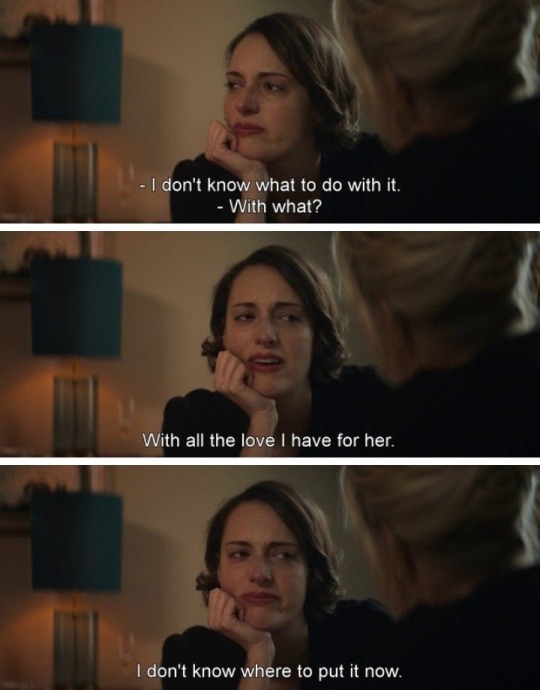




navigating grief?
a concise chinese english dictionary for lovers, xiaolu guo // fleabag (2019), phoebe waller-bridge // staying with the trouble: making kin in the chthulucene, donna haraway // dalton day // the stranger, albert camus // on earth we’re briefly gorgeous, ocean vuong
#poetry#dalton day#fleabag#phoebe waller bridge#ocean vuong#on earth we're briefly gorgeous#albert camus#the stranger#the concise Chinese English dictionary for lovers#Xiaolu Guo#dealing with grief#love#donna haraway
460 notes
·
View notes
Text
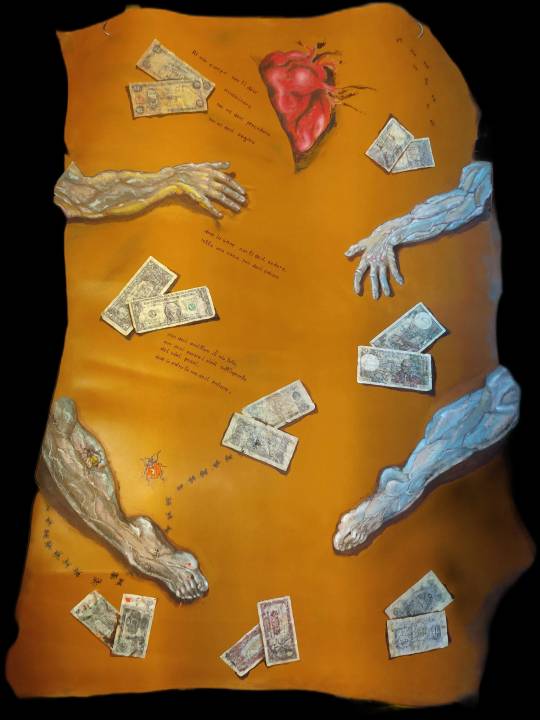
#dovevadoionondevivenire#rosaannaargento#artists on tumblr#arte#contemporary art#italianart#art#contemporaryartist#installation art#art installation#painting#donna haraway#sopravviveresuunpianetainfetto
25 notes
·
View notes
Text
Essential Reading for Me
How to Make Our Ideas Clear by Charles Sanders Peirce - This is essentially the first work of philosophical pragmatism and goes into how an idea can be clear and meaningful as well as what can be meant by reality. While I think Peirce undervalues symbolic thought somewhat and is a bit overly confident in our ability to know, it is a great work on the nature of what a clear idea is as opposed to a vague or meaningless idea and does a great job cutting through the needless navel-gazing so unfortunately prominent in intellectual discource
The Myth of Sisyphus by Albert Camus - The seminal short work on absurdism. Gives a brilliant summary of how the absurd comes to be. While I disagree with his idea on how to live given the absurd, I find his summary of the absurd brilliant
Ethics by Baruch Spinoza - This book serves as a brilliant argument for a pantheistic worldview and a deconstruction of dualism and a takedown of the idea of free will as well as serving as an interesting interpretation of human psychology. While Spinoza's extreme rationalism often gets the better of him, in my opinion, and a lot of the second half of the book is based on a barely founded assumption of a common human nature, and Spinoza's morality can lean a bit too heavily into asceticism in my opinion, its metaphysical analysis is an excellent conception of reality in my opinion, and it still has plenty of good ideas for living. It is overall a great read and guaranteed to shift your way of thinking about things, even if you don't agree with it.
The Cyborg Manifesto by Donna Haraway - An excellent text proposing a new myth of the cyborg that moves past old dualisms, nostalgias, and millennialisms. Also an excellent analysis of the society of control which, while dated in some places (being written pre-World-Wide-Web) is extremely prescient in others. Useful both as a critique and reconstruction of feminism and as a broader view of restructuring how we all think about ourselves.
Zeroes + Ones by Sadie Plant - An excellent text of cyberfeminist theory that deconstructs orthodoxies of our society and shows the complex fluidity of what we do often assume to be linear and simple. While sometimes a bit too fervently antihumanist, it is overall a great read that will change how you think about a lot of things related to life.
Capitalist Realism by Mark Fisher - An excellent deconstruction of late capitalist culture and its contradictions. While obviously some things have changed since it was written in the 2000s, I would argue that we are still trapped in capitalist realism despite what some idealists say - with the right being the main opposing force and the left mostly being either being glorified social democrats or ineffectual moralists - though the fact that the genuinely revolutionary left is regaining some degree of relevance, especially among the young, is a sign of potential improvement.
#spinoza#ethics#pantheism#charles sanders peirce#baruch spinoza#pragmatism#pragmaticism#how to make our ideas clear#philosophy#epistemology#metaphysics#camus#myth of sisyphus#absurdism#donna haraway#cyborg manifesto#cyberfeminism#sadie plant#mark fisher#capitalist realism#zeroes + ones
57 notes
·
View notes
Text

"Seguir con el problema", de Donna Haraway en la #LíneaB @_consonni_
#consonni#seguir con el problema#donna haraway#haraway#leo autoras#autoras#escritoras#feminist#feminist books#book#books#books and girls#girls and books#instabooks#books & girls#girls reading#reading#leyendo#more books please#books books books#more books#instalibros#libros#editoriales independientes#bibliofilos#bibliofilia#buenos aires#sexy books#sexy readers
7 notes
·
View notes
Text

A Cyborg Manifesto, Donna Haraway
33 notes
·
View notes
Text
something something the raven cycle characters are all hybrid beings between nature/magic and the human something something breaking up the dichotomy of man and nature and realizing our relationality with everything that surrounds us something something donna haraway something something
10 notes
·
View notes
Text
To YOU Donna Haraway is dense reading. Me I am a cyborg i get her
11 notes
·
View notes
Text
The main trouble with cyborgs, of course, is that they are the illegitimate offspring of militarism and patriarchal capitalism, not to mention state socialism. But illegitimate offspring are often exceedingly unfaithful to their origins. Their fathers, after all, are inessential.
A Manifesto for Cyborgs: Science, Technology, and Socialist Feminism in the 1980s, Donna J Haraway
203 notes
·
View notes
Text

#i found this on pinterest via john pittman but i’m not sure where the original came from i’m sorry 😞#i hope you know this is unironically iconic to me#absurdity#chaos#donna haraway#barbie
20 notes
·
View notes
Text
“… until Donna Haraway, the majority of feminist analysis of “technology” … reduced sex technologies to a constellation of reproductive techniques. The difficulty with this kind of feminist gait is that it falls into the trap of essentializing and homogenizing the category of the woman, an operation that generally leads to the conflation of women’s bodies and sexuality with the reproductive function, placing the emphasis on the dangers (domination, exploitation, alienation) that technology represents for women’s bodies.”
-paul b. preciado, the countersexual manifesto
29 notes
·
View notes
Text
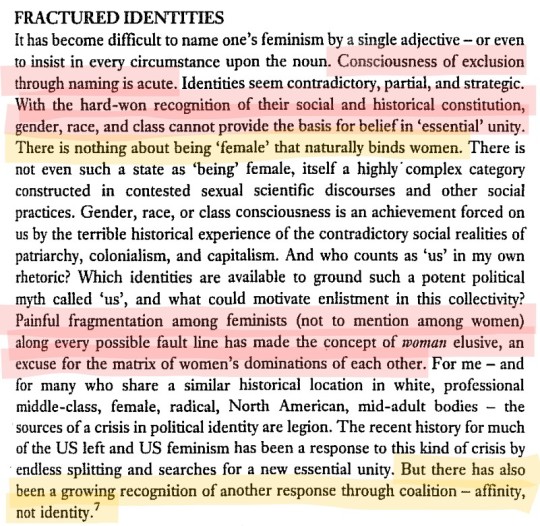
Affinity, not identity.
— Donna Haraway, A Cyborg Manifesto, 1985
#donna haraway#a cyborg manifesto#this essay is not without criticism obviously but i think about this part a lot. specially when you all out radfems on my dashboard#so this is about the ethel cain thing#im so tired.#stuff: quotes#ana says stuff
11 notes
·
View notes
